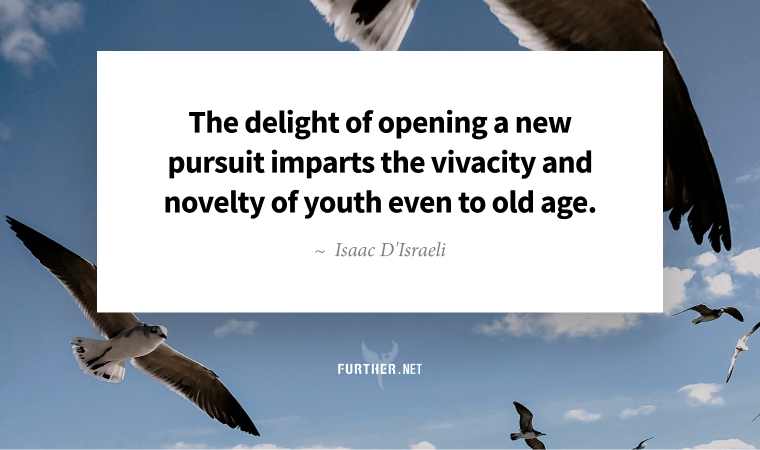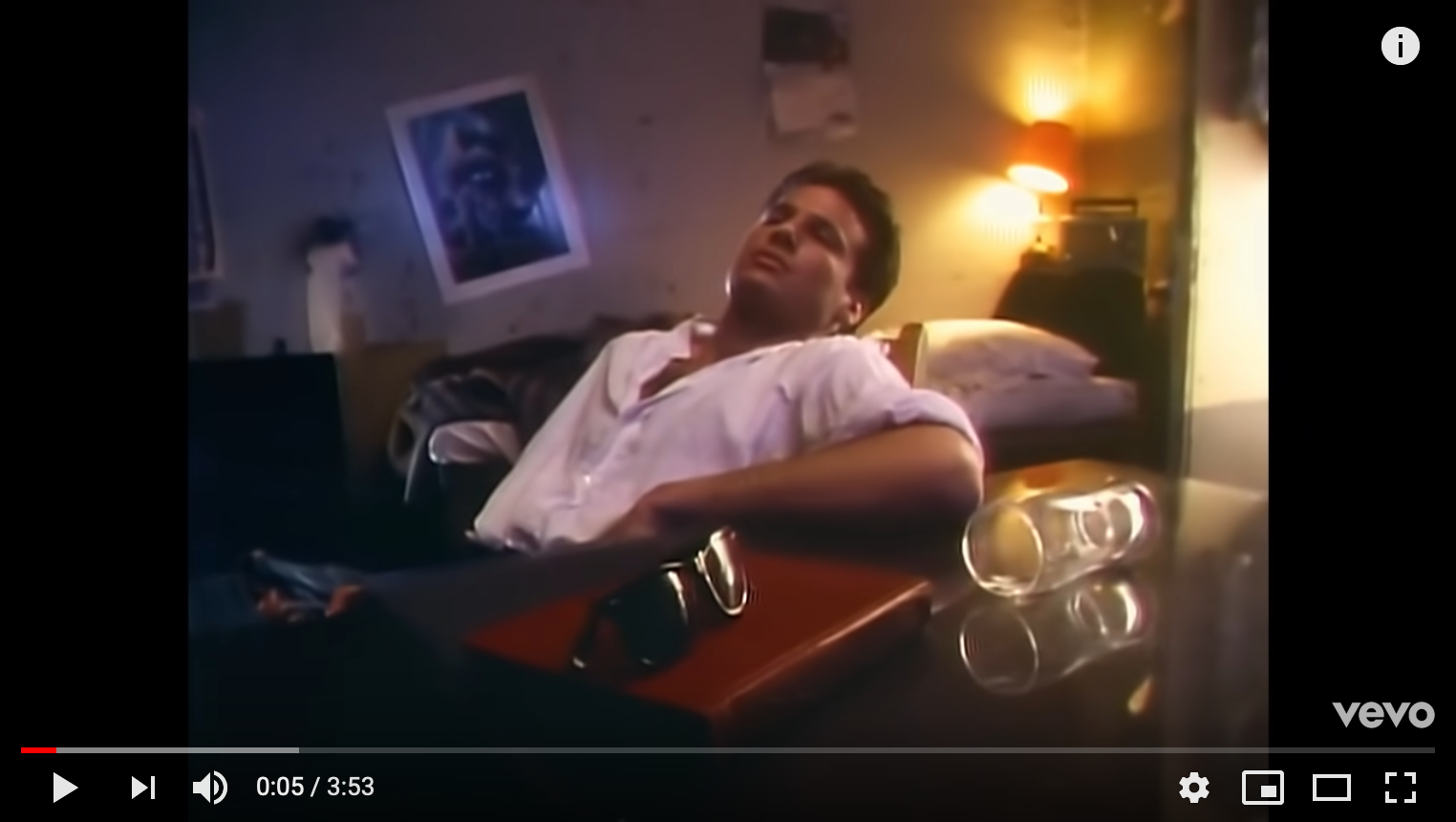Thrive by Making New Experiences a Habit 
Habits are all the rage these days. James Clear has sold millions of copies of his book Atomic Habits in the last two years, which is cool since I'm mentioned in it. ;-) And it's true that you have to be consistent to form new beneficial habits. You've got to focus on process instead of results to develop a new identity. Next thing you know, you're going to bed at the exact same time every night. You only eat during a certain 8-hour window. And you don't let anything interrupt your exercise routine. All of that is fantastic, but it's easy to go overboard and end up unhappier than you started. Worse, you can settle so far into routine that you actually stunt your brain and diminish your longevity. It's a bit of a conundrum: Is it possible that "anti-routine" should also be a regular part of our routines? That might sound contradictory, but research into brain health and longevity suggests that regular experience of novelty is essential to a long, happy life. That means you also need habitual novelty. In other words, you need to routinely expose yourself to new experiences. Novelty, by definition, is anything that is new to us, and the experience of novelty can take many forms: meeting a new friend, learning a new skill, buying a new outfit, listening to new music, or traveling to a new environment. Why is this important? Well, for starters, novelty makes us happier, improves memory and learning capacity, and keeps us motivated thanks to the resulting dopamine rush. But there's more to it. That motivation leads to a not only a longer lifespan, but also a superior healthspan: Novelty is so important to well-being that researchers have identified "neophilia" -- the desire to have novel experiences -- as a predictor of longevity. People who actively seek out new experiences throughout life live happier, healthier lives. New experiences and challenges are also key to continued career success. The neuroplasticity of your brain requires novelty, and without it creativity and innovation are practically impossible. Our brains need to be challenged to see new perspectives and to integrate new information. This is a huge benefit of a location-independent business. I travel and change locations constantly. And yet within that framework of novelty, I have creative routines and habits I follow that produce better work than if I chained myself to a desk in one place. The key takeaway is this: While our brains naturally crave novelty, this desire can be diminished because our brains also become strongly wired to the routines we establish. This makes us more likely to cling to familiar experiences as we get older. You don't want to act old, do you? Go chase a new experience today ... not because it's incredibly healthy for your brain; just because it will make you feel awesome. The Importance of Novelty Experience Some Intensity 
High intensity interval training sounds tough, and it is. You do it because it increases endurance and power, burns fat faster, strengthens your heart and cardiovascular system, and lowers your blood pressure and blood sugar levels. But what may surprise you is that inactive adults who tried a sampling of exercises preferred intense efforts to gentler workouts. Try High-Intensity Interval Training. You Might Like It. The Overwhelming Choice 
Yeah, who isn't feeling overwhelmed in 2020? Well, it's possible that some people don't feel that way. How can that be? Well, we can't choose what happens in the world and even in our own lives, but staying in a state of overwhelm is a choice. Here's how to choose differently. What it Really Means When You're Overwhelmed (and 4 Ways to Move Past It) The How of Happiness 
We all want to experience more happiness, but let's be clear what we're talking about first. "We go from associating happiness with excitement in our teen years, to pursuit in our 20s, to balance in our 30s, to contentment later in life." 5 Science-Backed Ways to Find Happiness Right Now Walk the Walk 
If it weren't for walking and hiking, this pandemic would have been so much tougher to deal with for me. Since this thing is still going and perhaps even getting worse, maybe the new experiences you need will come from creating a walking habit. As Cities Enter New Lockdowns, It's Time to Rediscover the Joys of Walking Speaking of walking, Trudi explores the benefits of the awe walk (how's that for an experience?). And as this week's Flashback reminds us, don't switch the blade on the guy in shades, oh no. Keep going- Brian Clark P.S. Share this issue of Further with friends, and earn cool Further gear. Your sharing links: Twitter | Facebook | LinkedIn | WhatsApp | Email Take a Walk of Wonder 
By Trudi Roth From the annals of the silver linings pandemic playbook, here's a fun fact: more than two-thirds of Americans surveyed by UnitedHealthcare say that since COVID-19 hit, walking has become their preferred exercise. Beyond the physical benefits, copious evidence supports the positive psychological impacts of fitness, including increased satisfaction and reduced anxiety, depression, and other mental ills. Walking, in particular, has been shown to boost creativity, innovation, and problem-solving. This, however, can be a double-edged sword when facing unprecedented adversity. It can be tempting to spin on challenges beyond your control. Luckily, it's easy to avoid bringing worries along on a walk. With a simple mindful shift, you can enjoy what researchers call an "awe walk." Take a walk on the wonder side While nature's awesome power has been humbling in recent months, it's small wonders that can have a big impact on mood, perspective, and well-being. Going on the hypothesis that aging into later life can cause social disconnection, anxiety, and sadness — things actually affecting people of all ages during the pandemic -- a team of scientists studied two groups of walkers. The control was asked simply to take a 15-minute walk outdoors once a week for eight weeks. How they did that was their choice. The rest had the same marching orders but were also told to go to new places and view details with wonderment and curiosity to cultivate awe. A somewhat nebulous emotion, awe generally is defined as the sense that you are in the presence of something larger and more consequential than yourself and that this something is mysterious and ineffable. Not surprisingly, the group who took new routes and practiced fresh perspectives reported feeling more optimistic and buoyant than those who didn't. Amplify amazement While it's easy to appreciate, say, a sweeping ocean landscape or stunning sunrise hike, there's also joy in beholding the petals of a late-season rose or the elegant sway of tree branches in the wind. Likewise, if you live in a city, make it a point to check out new neighborhoods and marvel at vibrant details. For example, you can follow in the footsteps of Matt Green, who has walked every New York City block. The point is, as the researchers said, to "focus on the world outside of your head." The results can be profound. Back to the study, where all of the subjects were asked to take selfies during their walk. Researchers observed that the awe walkers' faces grew smaller as the environment became more dominant. Nothing like that occurred with the control group. Make walking a daily habit, and along with better health, you get a dose of enlightenment. Now that's awesome. An 'Awe Walk' Might Do Wonders for Your Well-Being further: flashback  Corey Hart - Sunglasses At Night Corey Hart - Sunglasses At Night
First Offense, 1983 Let's face it, Sunglasses At Night is kind of a dumb song, but it's our dumb song. Plus, it always brings to mind this scene from The Blues Brothers: "It's 106 miles to Chicago, we got a full tank of gas, half a pack of cigarettes, it's dark, and we're wearing sunglasses. HIT IT." (YouTube) further: sharing If you enjoyed this issue, mind sharing it? If you do, you can win earn cool Further gear when people sign up. 
Your sharing links: Twitter | Facebook | LinkedIn | WhatsApp | Email You can also share wherever you like by copying and pasting your unique referral link: https://further.net?rh_ref=7fda93ad Thank you for sharing Further! | 









No comments:
Post a Comment